Professor Mario Capizzani holds a PhD in Business Administration (Marketing) from the University of California-Berkeley and a Master in Business Administration from IESE Business School. He earned a Master of Science in Mechanical and Aerospace Engineering from Arizona State University and a Bachelor of Science in Mechanical Engineering from Calvin College.
Question: Please tell us about the shift from working as an engineer to teaching marketing.
Answer: I am a mechanical engineer by training. I studied in Michigan, so naturally the default industry for me was the auto industry, which is where I went to work right after finishing college. Very quickly I realized that factories are located far away from cities, in places where most people prefer not to live. I used to commute an hour to work.
After dealing with operations and design and the typical operations stuff, I decided it was too lonesome and a little bit repetitive (i.e. boring), so I “doubled down,” so to speak, on engineering and got a master’s degree in mechanical and aerospace engineering. I changed my profession and did research for two years at Arizona State University. If the factory was a little bit lonesome, you can imagine how lonesome research was in a lab. I was probably the only person in the entire Sun Valley who didn’t see the sun for close to two years. I worked for a lab that studied fluid mechanics for nuclear reactors.
Having done the factory job and the research job, I thought that I needed to work on an engineering project that actually took place in a city. I moved to Buenos Aires, Argentina, my country of origin, and worked in the telecom industry. First, I worked as an engineer, designing and optimizing the networks for the cities. After a year or so, an opportunity came up for me to work on something analytical in the marketing department. We were about to launch “prepaid,” which promised to revolutionize the market, so I went to join that project. Another project I worked on was the integration with the mobile satellite provider, Iridium. I helped manage the commercial side of that venture. I worked on pricing and distribution agreements, and did presentations for the new service.
From that experience, I realized that I liked dealing with people and people problems, as opposed to machine problems. I started looking for MBA programs, specifically in Europe, and that’s how I came to IESE. Everything changed from then on. After the MBA, I worked for McKinsey and Company for a year and then joined IESE as an instructor in the marketing department. I got my PhD from UC Berkley and returned to IESE to teach.
Q: In a few years time, when robots take over the world, maybe you’ll go back to working with machine problems rather than people problems.
A: If the machines do a good enough job, then I’ll be unemployed. Thank goodness (for me) that MOOCs are not doing such a good job.
Q: MOOCs?
A: Massive Online Open Courses. They are good substitutes for lectures, but so far not that good for interactive learning. If robots and MOOCs complement each other, we might be out of a job someday.
Q: In your opinion, what are the main challenges that MBAs will face over the next three years?
A: I think the majority of MBAs, with the exception of the entrepreneurs and family-business MBAs, will experience a career track that resembles a rope-climber net that you find in children’s playgrounds, with more of a triangular-shaped career path. I really think that careers, especially as they become more project based, will be moving along these new “net” structures as opposed the traditional “climb the ladder” shape. I suspect that this is not just a 3-year shift, but rather a shift for the next generation of “knowledge workers.”
The majority of MBAs will experience a career track that resembles a rope-climber net that you find in children’s playgrounds, with more of a triangular-shaped career path
Q: Does this mean that we should be more flexible in how we approach the issue of moving up the ladder or up the “net”? Our careers might take a sudden left turn followed by a right?
A: Yes. Or sometimes it might go a step down, then two steps up. Flexibility is one of the issues, but it might also change the way people traditionally think of leadership. We believe that leadership is directly connected to a spirit of service . Service comes in many shapes and forms. I don’t have all the answers about the future, but flexibility is definitely required . You are all playing for the long game, and that game requires people to be patient and flexible . Even more so with the changes in careers that I’m anticipating.
Q: Where would your dream retirement location be?
A: Barcelona is pretty nice, isn’t it?
Q: Yes, it’s beautiful.
A: Hopefully, I’ll live long enough to be able to retire, which is not clear that our generation will be able to do. If that’s the case, my wife will tell me where I need to go.
Q: Favorite food?
A: Even though I come from a small town in Argentina and people think we’re carnivores, my wife tells me that I have an incredibly diverse palate. I like just about everything and thrive on variety. I used to have a roommate from India, and came to learn and appreciate the subtleties of the food from the different parts of India. I also like Asian and, really, food from all parts of the world.
Q: Which restaurant in Barcelona do you frequent the most?
A: I don’t tend to go to the same restaurant often since there are a lot of varieties in Barcelona, but lately I’ve been going to Peruvian restaurants.
Q: Tanta?
A: Tanta is one of them. Ferran Adrià and his brother have a Japanese-Peruvian fusion restaurant (Pakta) as well, which is quite good.
Q: If you weren’t teaching, what would you be doing instead?
A: Well…I still hope to clear out the tryouts for the Barcelona football team. I still play football, and one of these years I’m going to go for the tryouts (laughing). Perhaps this year, since they can’t hire from other clubs? That’s what I would rather be doing.
Q: What other hobbies do you have besides football?
A: I like spending time with my kids and the boys in particular, playing football. I also hope to take my kids mountain biking sometime soon. We like traveling as well. Since my wife and I are from two different countries, most of our long-haul travels tend to be visiting family, so even though we like to travel, we tend to travel to the same places.
Q: What place is high on your “to visit” list?
A: Tokyo. I’ve never been there. I have never been to Far East Asia and would like to go someday, hopefully soon.
What are your strengths? Where would you actually bring the most value? If you figure this out, you’ll solve half the equation to being happy professionally and serving society in a constructive way
Q: What is your favorite book?
A: One of my favorites is a classic. It’s On the Practice of Management by Peter F. Drucker. One I read recently is by a fellow who used to teach here at IESE years back. The book is called El japonés que estrelló el tren para ganar tiempo (The Japanese Man Who Crashed the Train to Gain Time) by Gabriel Ginebra. It talks about management in general and has a different vision on what management should be. On the non-business side, I kind of like history, and in particular, Roman history. Colleen McCullough is one of the biggest references and I have read several of her books. Unfortunately, these days I don’t seem to have time to read Roman history, so I tend to stick to business books.
Q: One of your areas of interest is consumer behavior. Please tell us more about that.
A: Actually, behavioral economics was my concentration during my PhD. Obviously consumers are the units of analysis here. We are all consumers. Behavioral economics is essentially a departure from traditional classical economics or neoclassical thinking and how it effects decisions and hence how firms can best respond to these “biases or judgments.”
Within that context, I delved into pricing. One way to price things is through auctions, to try to get the most value for a particular asset, so how to design them is important. For my dissertation, I studied departures from the traditional auction mechanism, when bidders did not behave completely in a “rational” way. However, for the last few years, I have concentrated more on studying digital commerce strategies.
Q: Closing comments?
A: For who? MBA students?
Q: To the two people who read my interviews.
A: Prepare for building more flexible careers going forward . You have to be patient. It’s a long game. You really need to look into what makes you happy . What are your strengths? Where would you actually bring the most value? If you figure this out, you’ll solve half the equation to being happy professionally and serving society in a constructive way. Other than that, stay young!
An older professor, someone whom I respect a lot, once told me this in response to my question of how he managed to stay relevant for so long and involved in so many projects: “Look, stay close to young people, that’s where the innovation is, that’s where many ideas come from, and in the end, that’s what gives you vitality.” So, ten years after you graduate, try to look up the students that are graduating and try to mentor them or approach them at work. You will learn a lot and get inspired.
I would like to thank Professor Mario Capizzani for his time. If you are one of the lucky people taking his DIGICOM class, I’m sure you’ll enjoy it. I challenged Professor Capizzani to a football game and hope we’ll have the opportunity to play one day.
Until the next issue…


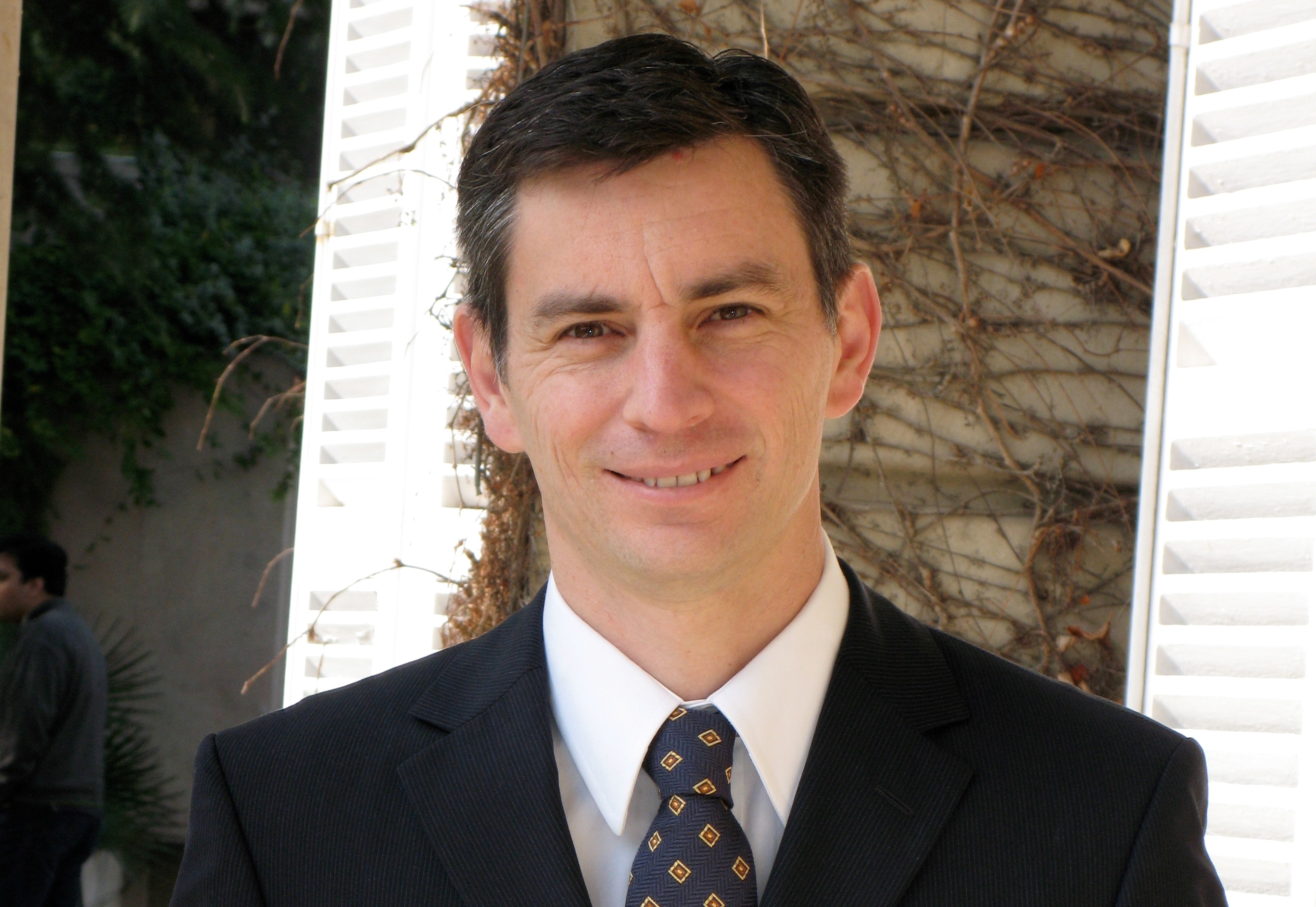
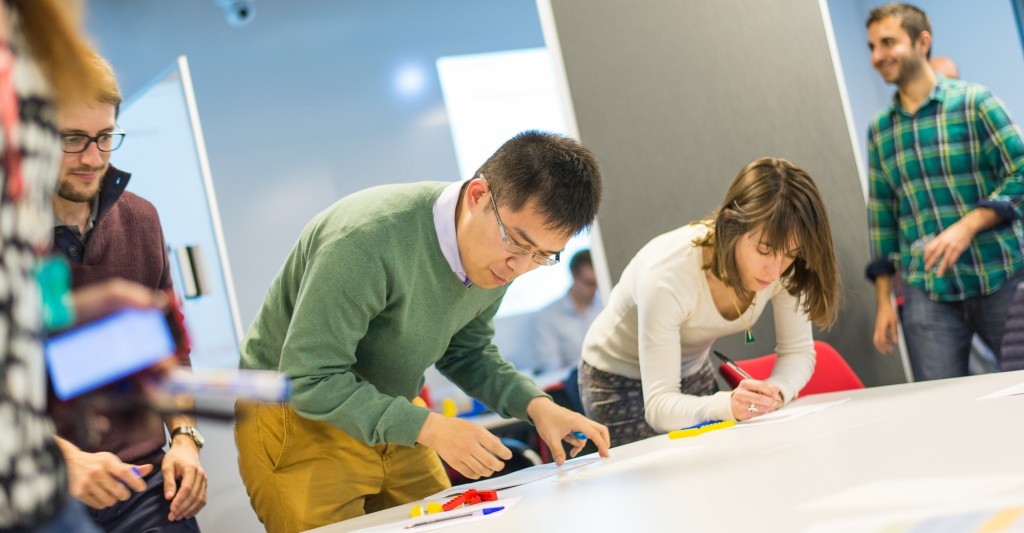
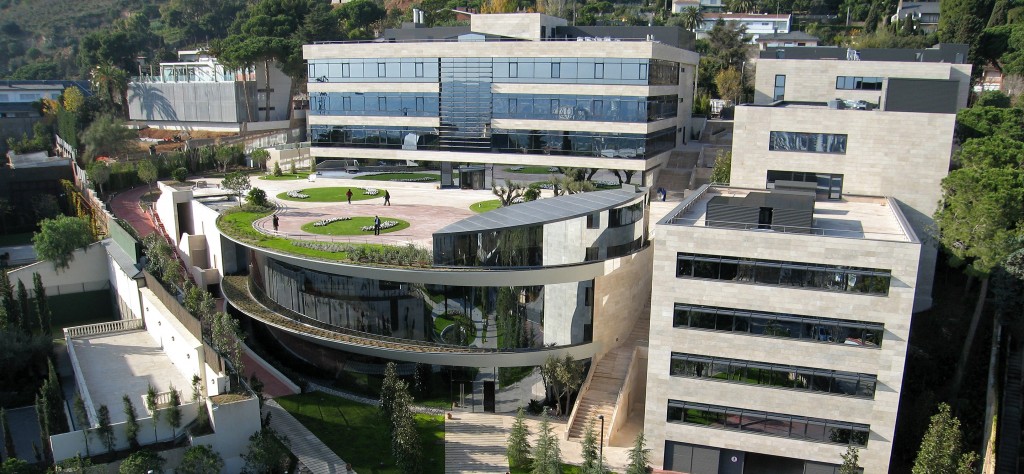
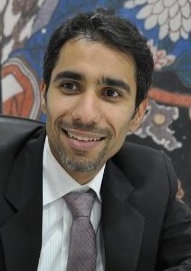
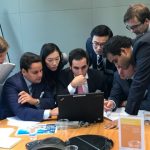
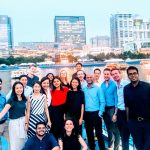
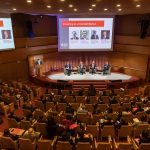
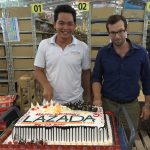
Interesting thanks for this article!!
Very interesting article!!!
Thank you
very nice Career related article